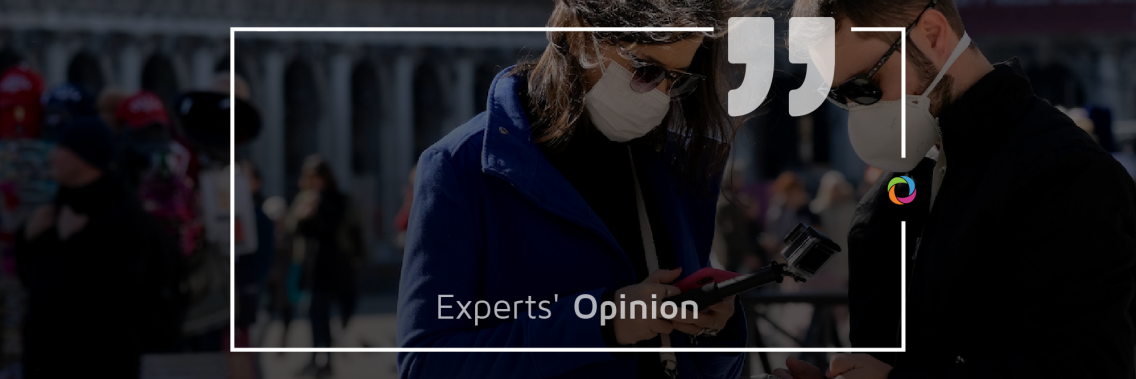COVID-19 has led to a parallel pandemic of disinformation that directly impacts lives and livelihoods around the world. According to UNESCO, the impacts of COVID-19 disinformation are more deadly than disinformation about other subjects such as politics and democracy. We asked the opinions of several media and communications experts regarding what the long-term consequences of this fake news could be and asked them to offer some possible solutions.
What are the main consequences of this rise in fake news?

“The sharing of fake news feeds off fear and insecurities. At times of great change or crisis, such as the COVID-19 pandemic, people crave information hopeful that it will answer their questions or give justification to their fears. Unfortunately, it has the opposite effect and can greatly undermine trust in evidence and lead to mistrust of advice from recognized experts. As a result of this, we get a situation where the facts are diluted and people don’t know who or what to believe which can impact their behavior – an especially dangerous situation during a pandemic. Just one person basing their decisions on misinformation can result in a tragedy but if tens, hundreds or thousands of people do this, it can have catastrophic effects.”

“In Africa, the most trusted sources of information about the disease are the media and government medical experts. Fake news is being disseminated through social media channels and they are using bogus government medical staff as masqueraders who give fake information about the virus. The fake news generated on social media is to some extent finding its way on mainstream media. Fake news has led to confusion on the virus and subsequently distrust for experts. Some countries take a proactive approach to dispel fake news whilst others are taking a wait-and-see approach. As the continent grapples with fake news, not only are the actual cases of the epidemic rising, so are the fatalities.”

“This is unfortunately the most justified level of misinformation. With some world leaders doubting the seriousness and basic reality of the pandemic, how are their populations and cross-border supporters expected to take it more seriously?! Clearly, they are responding with comments on social media with all sorts of conspiracy theories now fueled by the doubts raised by the supposedly most informed leaders. With more countries now relapsing into a second COVID phase, this is more likely going to lead to a greater global depression, increased crime rates, less confidence in the media and other sources and therefore lead to a tougher and longer recovery management plan.”
How can fake news affect international aid?

“The longer the pandemic lasts, the less money governments can assign to foreign financial aid as their budgets are reallocated. Travel restrictions and fear of contamination will also discourage the much-needed participation of experts and volunteers in the delivery of financial aid objectives. This will have a varying impact on different aid sectors. However, they will all be significantly affected.”

“By creating a culture of misinformation and fear, fake news spreads like a virus. This can cause huge damage to the international aid sector as the sheer volume and mixed messaging makes it more difficult for people to ascertain reality from fiction. Fake news can be harder to spot when we have new and emerging situations, such as the COVID-19 pandemic, where the scientific consensus and advice is constantly evolving as we learn more about the virus. Communicating risk and uncertainty is notoriously hard to do and, when we are trying to communicate health advice as part of this, it is easy for fake news and misinformation to fill the gaps, constructing alternative narratives around the truth.”
What should the international community do to counteract this phenomenon?

“To counteract this phenomenon, the international community should promote good information for all by designing effective information campaigns and other pragmatic interventions such as producing and disseminating facts and accurate information, working with the media to fight against the ‘disinfodemic’, sharing the correct information and mobilizing civil society to ensure trustworthy and verifiable public health information reaches communities everywhere.”

“One of the ways of tackling fake news is through a combination of media campaigns (in vernacular languages) and community-based channels or influencers. Community based channels allow a two-way communication process that ensures that the fears and misconceptions of people are addressed leading to the successful dispelling of fake news.”

“A good rule of thumb is to question anything that evokes a strong emotion from you. Take a few minutes to read beyond the headline and the first few lines of an article, or check whether an image has been used in context. Question the person or organization that is sharing the information and if you can’t verify the original source, or something just doesn’t seem right, then challenge it and report it to the platform it appears on. It’s important that we take a zero-tolerance approach to fake news, as even though it may seem benign at times, it serves to increase mistrust of true sources of information – leading to situations where people don’t know who or what to believe.”
Check out more than 590 job opportunities in media and communications sector here.

